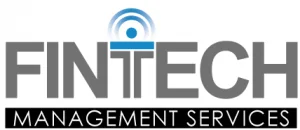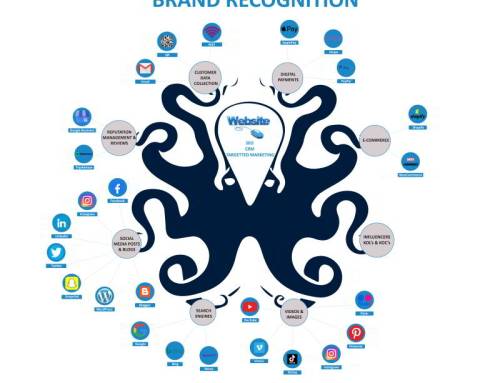
Social Media Marketing is the process of using social media platforms to connect with your audience, build your brand, increase sales, and drive website traffic.
It involves creating and sharing engaging content such as posts, images, and videos, interacting with followers, running paid advertisements, and analyzing the results to improve overall performance.
Key activities include content creation, social media advertising, community engagement, and analytics and reporting.
By strategically using various social media networks, businesses can connect with customers, enhance brand awareness, and achieve their marketing goals more effectively.
Why Social Media Marketing is essential
In today’s digital marketplace, social media marketing isn’t just a tool; it’s a necessity.
With numerous social media platforms available, this is where your current and prospective customers spend their time. It is essential to gain and expand your brand’s visibility on these platforms to reach and engage with your target audience effectively.
Social media marketing is cost-effective and enables precise audience segmentation, ensuring your brand’s message reaches the right people at the right time.
Furthermore, social media allows for real-time engagement and interaction, fostering a sense of community and loyalty among your customers.
The analytics and feedback obtained from effective social media management allow you to tailor your strategies and deliver an enhanced customer experience.
By monitoring customer comments and identifying trends, you can make informed decisions that align with your business goals. Social media marketing also provides a platform for showcasing your brand’s personality and values, helping to build trust and credibility with your audience.
By adopting social media marketing, you gain a competitive advantage over businesses that do not utilise these platforms.
It positions your brand and unique selling proposition (USP) in front of the limited pool of customers that everyone is vying for, driving business growth and success.
Additionally, social media marketing facilitates influencer collaborations and user-generated content, amplifying your reach and impact.
Ultimately, social media marketing ensures that your brand remains relevant and visible in a crowded digital landscape. It allows you to adapt quickly to changing market trends and customer preferences, ensuring long-term success and growth.
How a company is disadvantaged by NOT using social media marketing effectively:
In the contemporary digital landscape, not utilising social media marketing or using it ineffectively can significantly hinder a business’s success.
Reduced brand visibility is one of the most immediate disadvantages, as social media platforms provide unparalleled reach. Without an active presence, your brand may remain obscure to potential customers, limiting growth opportunities and making it difficult to compete with businesses that maintain a strong social media presence.
Missed engagement opportunities further compound the issue.
Social media is a primary avenue for customer interaction and relationship-building. Ineffective use or total neglect of these platforms can result in missed chances to engage with your audience, answer their queries, and foster a sense of community. This lack of interaction can lead to lower conversion rates, as potential customers are less likely to develop the trust and loyalty required to make purchasing decisions.
Additionally, without effective social media marketing, businesses miss out on valuable customer insights.
Social media platforms offer analytics and feedback that are crucial for understanding customer behaviour, preferences, and trends. Without this data, tailoring marketing strategies to meet customer needs becomes challenging, and businesses may struggle to deliver a personalised customer experience. This can result in higher marketing costs, as inefficient strategies require more resources to achieve the same results.
Moreover, businesses that do not leverage social media marketing effectively are at a competitive disadvantage.
Competitors that utilise these platforms to their full potential will likely attract and retain more customers, leaving behind those who fail to do so.
Finally, without active social media management, businesses have less control over negative feedback. Unaddressed negative comments can harm a brand’s reputation, as potential customers often check online reviews before making decisions.
In summary, ineffective or non-existent social media marketing can result in:
- Reduced brand visibility,
- Missed engagement opportunities,
- Lower conversion rates,
- Lack of customer insights,
- Higher marketing costs,
- Competitive disadvantage, and
- Less control over negative feedback.
This highlights the importance of a robust social media marketing strategy to maximise opportunities and maintain a strong, positive brand reputation in the digital age.
The effect use of SMM and the consequences of its ineffective use:
In today’s digital marketplace, social media marketing isn’t just a tool; it’s a necessity.
Effective social media marketing
- Can significantly elevate a business’s online presence and drive success.
- Offers increased brand awareness, enabling businesses to capture the attention of a wider audience.
By establishing and managing profiles on relevant social media platforms, businesses can ensure their brand remains visible and engaging. This visibility is crucial for positioning a company as a leader in its industry.
Enhanced customer engagement is another vital benefit.
By regularly updating content, conducting mailshots, and distributing newsletters across social media, email, and websites, businesses can foster strong relationships with customers. This interaction promotes loyalty and repeat business, ultimately leading to higher conversion rates.
Social media marketing also provides improved customer insights through valuable analytics and feedback, allowing businesses to tailor their strategies and deliver a better customer experience. This data-driven approach ensures that marketing efforts are continuously optimised for better results, driving growth and success.
Cost-effectiveness is another significant advantage.
Social media marketing allows for precise audience segmentation, ensuring that resources are used efficiently to reach the right people. This provides a competitive edge over rivals who may not be utilising social media as effectively.
Furthermore, proactive management of social media helps businesses control negative feedback, safeguarding their reputation and demonstrating a commitment to customer satisfaction.
Conversely, not utilising social media marketing or using it ineffectively can have several disadvantages.
Reduced brand visibility is one of the most immediate consequences, as social media platforms provide unparalleled reach. Without an active presence, a brand may remain obscure to potential customers, limiting growth opportunities.
Ineffective use of social media can also result in missed engagement opportunities, as businesses fail to interact with their audience and foster a sense of community. This lack of interaction can lead to lower conversion rates, as potential customers are less likely to trust and engage with the brand.
Additionally, businesses that do not leverage social media effectively miss out on valuable customer insights.
Without access to analytics and feedback, tailoring marketing strategies becomes challenging, and inefficient strategies may lead to higher marketing costs.
Competitors who utilise social media to its full potential will likely attract and retain more customers, leaving behind those who fail to do so.
Moreover, ineffective social media management can result in less control over negative feedback, which can harm a brand’s reputation and deter potential customers.
In summary:
Social media marketing is essential for maximising business benefits and driving success. It:
- Increases brand awareness,
- Enhances customer engagement,
- Improves conversion rates,
- Provides valuable customer insights,
- Offers cost-effective marketing solutions, and
- Gives a competitive advantage while effectively managing negative feedback.
On the other hand, not using social media marketing or using it ineffectively can lead to:
- Reduced brand visibility,
- Missed engagement opportunities,
- Lower conversion rates,
- Lack of customer insights,
- Higher marketing costs,
- Competitive disadvantage, and
- Less control over negative feedback.
By implementing a robust social media marketing strategy, businesses can ensure long-term success and growth in the digital age.
FinTech Management Services can help your business to achieve this result.
Contact FinTech Management Services TODAY to find out how.
Useful link: Social Media – Should Small and Medium Size Businesses Use It?


Leave A Comment